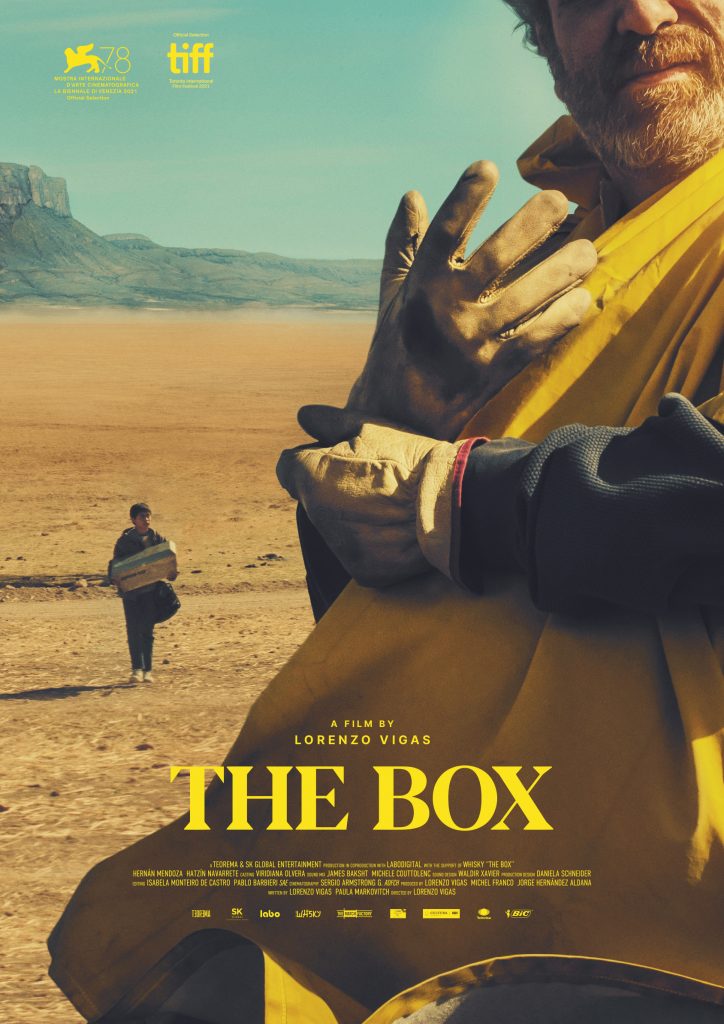BOX, THE (LA CAJA)
(director/writer: Lorenzo Vigas; screenwriter: Paula Markovitch; cinematographer: Sergio Armstrong; editors: Isabela Monteiro de Castro, Pablo Barbieri; cast: Hatzín Navarrete (Hatzín), Hernán Mendoza (Mario Enderle), Cristina Zulueta (Norita); Runtime: 92; MPAA Rating: NR; producers; Lorenzo Vigas, Michel Franco, Jorge Hernandez Aldana: Ivanhoe Pictures/The Match Factory; 2021-Mexico/USA in Spanish with English subtitles)
“A powerful film on the mysterious relationship between a possible father and his son.”
Reviewed by Dennis Schwartz
The Venezuelan director Lorenzo Vigas (“From Afar”) sets his serious political and social drama in a mining town in northern Mexico. With co-writer Paula Markovitch, Vigas presents a powerful film on the mysterious relationship between a possible father and his son, and he also wants us to know of abusive labor practices that are wide-spread across Mexico that no one in authority seems too concerned about. Along with Vigas’s 2016 documentary “The Orchid Seller,” in which he traced his artist father’s creative ventures, “The Box” finishes his paternal themed trilogy.
Vigas tells the provocative story of a teenage Mexican boy, Hatzin (Hatzín Navarrete, newcomer non-actor), we first meet on a train he boarded from his home in Mexico City and is heading to the Mexican North desert and its mining town. The angry but quiet Hatzin is on his way to pick up the remains of his estranged father. He is going to the mining town because he was informed by the workplace his migrant-laborer father Esteban died in an accident with many others while on the job.
At the mining site, after giving the requisite paperwork to a clerk, the impassive Hatzin is given Esteban’s remains, exhumed in an unmarked mass grave and placed in an ordinary steel box. He then calls his grandmother to say he got what he came for and takes the bus home carrying the box, At one bus stop of a dead-beat desert town, he spots someone who looks like his father. While waiting in town, he talks to the stranger (Hernán Mendoza) who tells him his name is Mario and graciously tells him he’s mistaken—he’s not his father.
Hatzin won’t accept his rebuff and wears down the stranger with his insistence, who brings him home to meet his pregnant wife (Cristina Zulueta).
It turns out Mario is not a good guy but a corrupt one, who supplies needy workers to local factories to be exploited. The eager to be fooled Hatzin, losing his innocence, now finds himself involved in the family’s criminal business and his sudden new life reflects the vast desert in its emptiness and sense of entrapment. The kid seems as if he’s lost his bearings and has become a dead-man walking.
It invites comparisons to a Dickens story of children growing up to be exploited without love as orphans, only it’s life in the desert here and not in a big city.

REVIEWED ON 9/12/2021 GRADE: B+